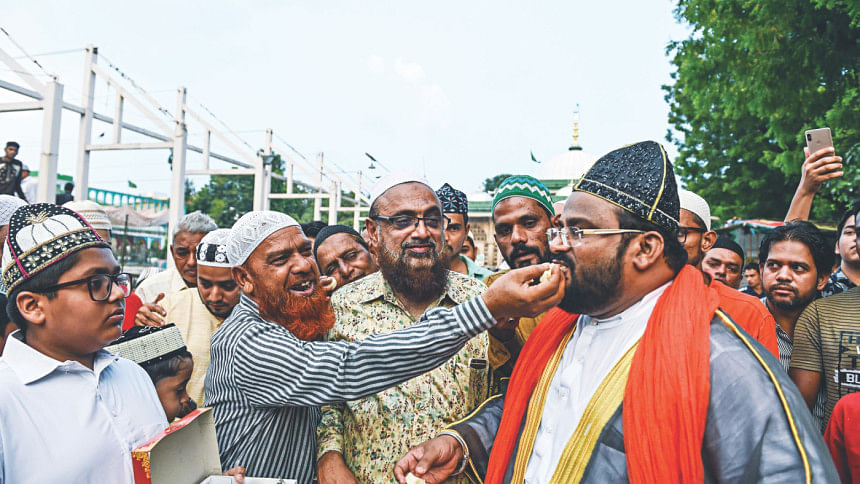Babri mosque-Ram temple case

5114 BC: According to devout Hindus, this was when the important warrior deity Lord Ram or Rama, the seventh avatar of Vishnu, is born in Ayodhya in northern India.
1528 AD: After more than a year’s work, a mosque to honour first Mughal King Babur, who came from what is now Uzbekistan to conquer northern India, is completed.
1853: The first recorded sectarian clashes over the mosque erupt after Hindu devotees launch protests saying the mosque was built on the birthplace of Rama. Muslims stage their own march on Ayodhya and about 70 die in clashes. Two years later, another Muslim march on the city is fought back by British troops in clashes that leave up to 700 dead.
1934-1949: The mosque is damaged in a communal riot in 1934 after the killing of a cow, an animal many Hindus consider sacred. But it is soon after the subcontinent’s 1947 partition into Hindu-majority India and Muslim-dominated Pakistan that Ayodhya becomes a battleground between the two faiths.
ON DECEMBER 22, 1949, dozens of people break into the mosque and set up idols of the gods Ram and Sita. The next day, thousands of Hindus gather outside believing it was a miracle. Federal courts order the idols to be removed, but local courts refuse to enforce the action. The government declares Babri Mosque a “disputed property” and its gates are locked. No Muslim prayers offered at the mosque since then.
1950-61: Four civil suits filed in the court ranging from the rights to perform Hindu rituals at the site to a Muslim group seeking declaration and possession of the site.
1984: A committee is formed by Hindu groups, including the Vishnu Hindu Parishad party (VHP), to spearhead the construction of a Hindu temple.
1990: The leader of the right-wing Bharatiya Janata Party (BJP) LK Advani leads a nationwide campaign to build a Ram temple in the place of the mosque. Some 30 Hindus are killed in clashes.
December 6, 1992: A Hindu mob reduces the mosque to rubble. Riots break out across the country leading to the killing of about 2,000 people.
December 16, 1992: Ten days after the demolition of the mosque, the central government forms the Liberhan Commission to probe the incident.
2003: Archaeologists begin a court-directed survey to determine whether a Hindu temple existed at the site. The survey says there is evidence of a temple beneath the mosque, but many archaeologists and Muslims dispute the findings.
June 2009: The Liberhan Commission submits its report, with senior BJP leaders, including Advani, facing trial for the demolition of the mosque.
September 2010: Three judges rule that the disputed site should be shared by Hindus and Muslims. The High Court said two-thirds of the 2.77-acre (1.12-hectares) site belongs to Hindu groups (Nirmohi Akhara sect and Ramlalla Virajman) and the rest to the Muslim group (Sunni Central Wakf Board, UP).
May 2011: India’s Supreme Court suspends the High Court ruling following appeals by Hindu and Muslim groups.
March 21, 2017: The chief justice of India suggests out-of-court settlement between Hindus and the Muslims.
April 19, 2017: The Supreme Court revives conspiracy charges against top Bharatiya Janata Party leaders, including Advani, Murli Manohar Joshi, in the demolition case.
March 8, 2019: The top court sets up a mediation panel headed by former Supreme Court judge FM Ibrahim Kalifulla to find an out-of-court settlement.
August 2, 2019: The Supreme Court says mediation efforts have failed.
August 6, 2019: Supreme Court commences day-to-day hearing on the Ayodhya land dispute.
October 16, 2019: The Supreme Court concludes hearing; the five-judge bench reserves judgement.
November 9, 2019: The Supreme Court rules that the land must be handed over to a trust to oversee the construction of a Hindu temple, subject to conditions. A separate piece of land in Ayodhya would be given over to Muslim groups.

 For all latest news, follow The Daily Star's Google News channel.
For all latest news, follow The Daily Star's Google News channel. 



Comments